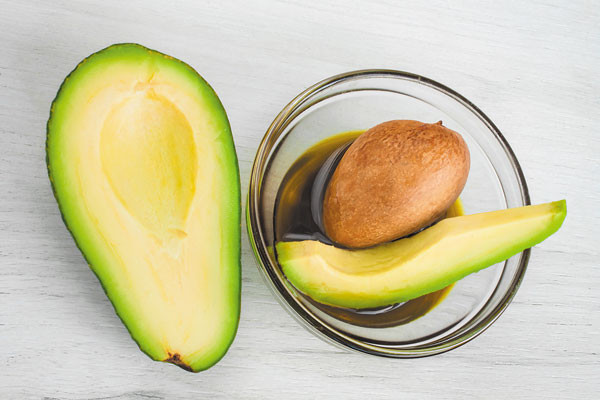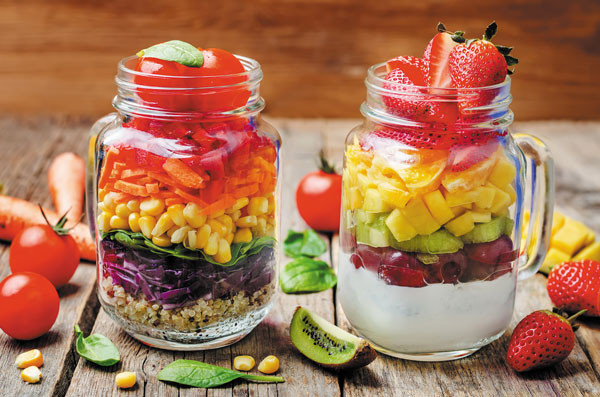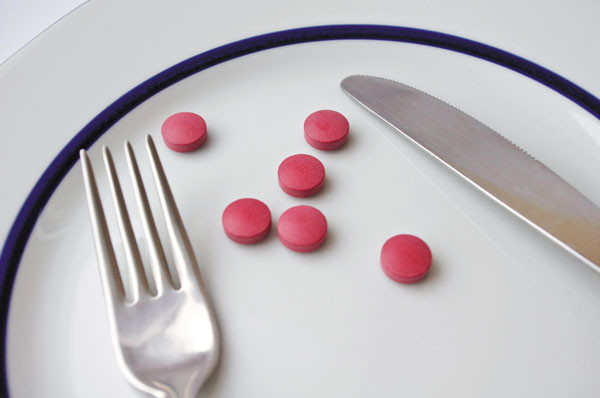
5 timeless habits for better health

What are the symptoms of prostate cancer?

Is your breakfast cereal healthy?

When pain signals an emergency: Symptoms you should never ignore

Does exercise give you energy?

Acupuncture for pain relief: How it works and what to expect

How to avoid jet lag: Tips for staying alert when you travel

Biofeedback therapy: How it works and how it can help relieve pain

Best vitamins and minerals for energy

Should you take probiotics with antibiotics?
Nutrition Archive
Articles
Choking alert: Strategies for safe swallowing
Therapy, exercises, and changes in eating habits will help keep you safe.
Image: nyul/ iStock
It used to be so easy to munch a handful of nuts: chew, swallow, enjoy. Now, you avoid them or make sure there's a glass of water nearby when you eat nuts or any other foods that seem to get stuck in your throat. "It's normal to have some age-related changes with swallowing or occasional difficulty swallowing. What's not normal is when food or liquids get into the lungs regularly," says Semra Koymen, a speech-language pathologist at Harvard-affiliated Brigham and Women's Hospital.
Causes and symptoms
Diagnosis
A speech pathologist's evaluation of dysphagia includes an exam of your mouth and tongue, consideration of your medical history and symptoms, and most likely a test in the radiology department called a video swallow study. It's done using a fluoroscopean x-ray machine that takes moving pictures. You swallow a variety of liquids and foods mixed with barium, a substance that shows up on x-rays. "As you swallow, we can see the material move through the mouth and throat and into the esophagus," says Koymen.
Treatment
Harvard researchers link “good” fats with longer life
It appears that eating more saturated and trans fats is associated with earlier death, while eating more polyunsaturated and monounsaturated fats is associated with longer life.
The Nutrition Facts label finally gets a makeover
Updates that may benefit heart health include details on added sugars and more accurate serving sizes.
Image: Noel Hendrickson/ Thinkstock
The information on the Nutrition Facts label—that small box of nutrition-related data on the back of all food packages—has stayed pretty much the same since its introduction back in 1993. But earlier this year, the FDA approved a number of revisions to the panel. The changes reflect the evolving scientific evidence on the connections between diet and chronic illness—particularly obesity and heart disease.
The updated labels won't be mandatory for nearly two years, but the agency provided a preview (see "The new label: What's different?"). These changes may benefit consumers not only by helping them choose more nutritious foods, but also by driving the food industry to make products healthier, says Dr. Eric Rimm, professor of epidemiology and nutrition at the Harvard T.H. Chan School of Public Health. Many of the changes are relevant for people concerned about heart disease—especially the new data on added sugars.
The power of plant-based protein: A longer life?
People who eat more plant-based proteins from beans, nuts, and grains may have a lower risk of dying from heart disease or any cause, compared with people who eat more animal-based proteins such as meat or eggs.
Cancer and diet: What’s the connection?
Your dietary habits can promote cancer or protect against it.
Image: Udra/ Thinkstock
The link between cancer and diet is just as mysterious as the disease itself. Much research has pointed toward certain foods and nutrients that may help prevent—or, conversely, contribute to—certain types of cancer.
While there are many factors you can't change that increase your cancer risk, such as genetics and environment, there are others you can control. In fact, estimates suggest that less than 30% of a person's lifetime risk of getting cancer results from uncontrollable factors. The rest you have the power to change, including your diet.
Whole grains associated with lower death rates
Eating 70 grams (four servings) of whole grains daily may lower your risk of death from cardiovascular disease and cancer, according to a study in Circulation. One serving of 100% whole-grain food contains about 16 grams. Examples include one slice of 100% whole-grain bread or a half cup of oatmeal or cooked whole-grain pasta.
Substituting plant for animal protein may extend life for people with health risks
An analysis of two observational studies involving 130,000 participants suggests that substituting plant protein for some animal protein may reduce the risk of early death by one-third in people with unhealthy lifestyles.
Are fresh juice drinks as good for you as they seem to be?
Cold-pressed juices and smoothies can add fruits and vegetables to your diet, but they can also pack in calories.
Image: Mermusta /Thinkstock
According to food industry statistics, there's a healthy trend afoot. People are shifting from sugary sodas and processed bottled juice drinks to beverages like cold-pressed juices and smoothies. Sales of juice extractors and blenders lead the small-appliance market, and juice bars continue to spring up on city streets, in shopping malls, and even in supermarkets.
There are a couple of reasons people are taking to these beverages, says Kathy McManus, director of the Department of Nutrition at Harvard-affiliated Brigham and Women's Hospital. "They think they are doing something healthy, and the beverages can be time savers. It can be faster to grab a smoothie in the morning instead of sitting down to breakfast."
Tracking bites and using a smaller plate helps control eating, study shows
Both wearing a bite counter and eating from a small plate were linked to lower calorie consumption.
Are your medications causing nutrient deficiency?
Long-term doses of certain medications may rob you of calcium, folic acid, and crucial B vitamins.
Short-term medication use will not lead to nutrient deficiency. But long-term use may interfere with your body's ability to absorb nutrients or produce them.
Image: Gruzdaitis Andrius/Thinkstock
Medications are well known for causing side effects such as nausea or drowsiness. These are the kinds of side effects you notice and can do something about. But sometimes a lesser known side effect happens without giving you any warning: nutrient deficiency.

5 timeless habits for better health

What are the symptoms of prostate cancer?

Is your breakfast cereal healthy?

When pain signals an emergency: Symptoms you should never ignore

Does exercise give you energy?

Acupuncture for pain relief: How it works and what to expect

How to avoid jet lag: Tips for staying alert when you travel

Biofeedback therapy: How it works and how it can help relieve pain

Best vitamins and minerals for energy

Should you take probiotics with antibiotics?
Free Healthbeat Signup
Get the latest in health news delivered to your inbox!
Sign Up











